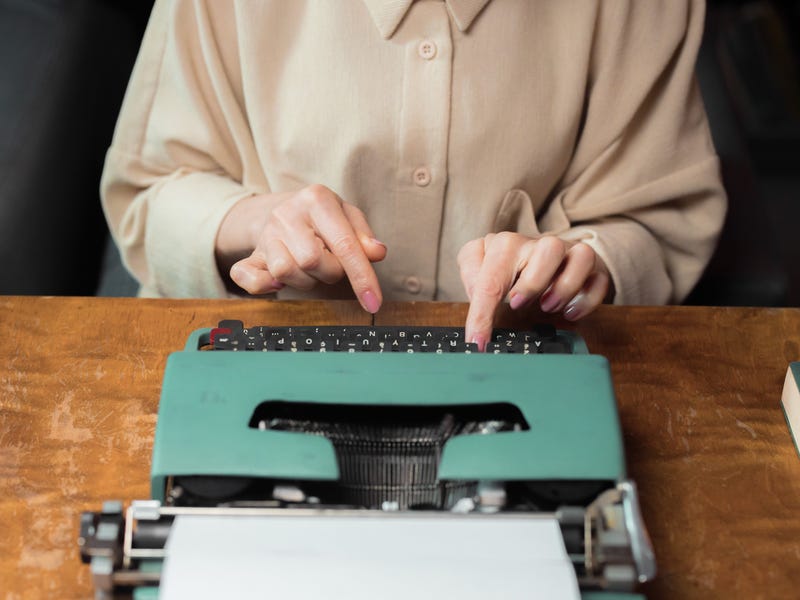Umlaute are basically just vowels with googly eyes - but what do they do, and how do you pronounce them?
If you’re learning German, you’ve probably come across some curious-looking letters before and wondered how to pronounce words like “übermäßig” or “Mäuseöhrchen”. We’re here to bring some clarity:
The German alphabet has four letters that don’t exist in English:
- Ä
- Ö
- Ü
- (ß)
The first three are called “Umlaute” and we’ll take a close look at each one of them so you know what they are, what they sound like and how to use them.

Umlaute meaning
An Umlaut is a diacritic mark, or accent, which looks like two dots and goes above a vowel. This usually changes the pronunciation of the vowel or transforms it into another independent vowel. Different languages have different Umlaute or other vowel alterations, for example, Hungarian has the “ű” and Danish has the letters “æ”, “ø”, and “å”.
The three German Umlaut letters are “ä” as in “März”, “ö” as in “Königin”, and “ü” as in “Glück”.
Originally, “ä”, “ö” and “ü” were considered variants of the base letters “a”, “o”, and “u”, but since the spelling reform in 1996, they’re officially recognized as separate letters.
Let’s have a closer look at each one of them!
The Ä
The “ä” indicates a change in the sound of the letter "a" that makes it sound similar to the English "eh" sound, as in "bed" or "head." It’s a common mistake to mispronounce the “ä” like a common “e” even among native German speakers. You’ll notice this, especially in the North, where a word like “ähnlich” (similar) is often falsely pronounced “ehnlich”.
Example words with Ä
| German | IPA | English |
| Ähnlich | [ɛːn.lɪç] | Similar |
| Ägypten | [ɛːɡʏptən] | Egypt |
| Der Bäcker | [deːɐ̯ 'bɛkɐ] | Bakery |
| März | [mɛrts] | March |
| Mächtig | [ˈmɛːçtɪç] | Mighty |
| Der Käfer | [deːɐ̯ 'kɛːfɐ] | Bug |
| Der Bär | [deːɐ̯ 'bɛːɐ̯] | Bear |
| Näher | ['nɛːɐ̯ɐ] | Closer |
| Wäre | [ˈvɛːʁə] | Would be |
| Zählen | [ˈtsɛːlən] | To count |
The “Äu” exemption
There’s one case in which the “ä” is not pronounced like a classic “ä” and that’s in combination with the vowel “u”. As you may remember from our guide on German vowels and diphthongs, certain vowel combinations have their own unique pronunciation and “äu” is one of those. Instead of pronouncing both vowels separately, “äu” is pronounced like the English “oy”.
Example words with Äu
| German | IPA | English |
| Äußerst | ['ɔɪ̯sɐst] | Extremely |
| Häufig | ['hɔɪ̯fʊç] | Often |
| Träume | [ˈtʁɔʏmə] | Dreams |
| Das Häuschen | [das 'hɔɪ̯ʃən] | Little Haus |
| Die Äußerung | [diː 'ɔɪ̯sɛʁʊŋ] | Statement |
The Ö
The German letter "ö" is a vowel that sounds similar to the “o” in the English “occur”. It’s the most common one of the three Umlaute, so you won’t be able to escape it!
Here are some example words with the letter “ö” - from oil paintings to birds.
Example words with Ö
| German | IPA | English |
| Öffnen | ['œfnən] | To open |
| Die Ölmalerei | [diː ˈœlmaˌlaːraɪ] | Oil painting |
| Die Öffentlichkeit | [diː ˈœfn̩t.lɪçkaɪt] | Publicity |
| Das Löwenmäulchen | [das ˈløːvənˌmɔʏlçən] | Snapdragon |
| Schön | [ʃøːn] | Beautiful |
| Fröhlich | [ˈfʁøːlɪç] | Cheerful |
| Das Gedöns | [das ɡəˈdœns] | Stuff |
| Der Körper | [deːɐ̯ ˈkœʁpɐ] | Body |
| Vögel | ['fœːɡl] | Bird |
| Zöpfe | ['tsœpfə] | Braids |
The Ü
The German “ü” sound is difficult to describe as no similar sound exists in English. That’s probably why so many English speakers tend to ignore the two dots and treat the “ü” like a common “u”.
It may take some practice but you’ll get there. Start by saying the "o" in the English word "do" like you have a strong British accent!
Example words with Ü
| German | IPA | English |
| Übermorgen | ['yːbɐˌmɔʁɡn̩] | The day after tomorrow |
| Die Blüte | [diː ˈblytə] | Blossom |
| Der Schlüssel | [deːɐ̯ ˈʃlʏsəl] | Key |
| Der Frühling | [deːɐ̯ ˈfʁyːlɪŋ] | Spring |
| Die Würde | [diː ˈvʏɐ̯də] | Dignity |
| Liebe Grüße | [ˈliːbə ˈɡʁyːsə] | Kind regards |
| Gemütlich | [ɡəˈmyːtlɪç] | Cozy |
| Süß | [zyːs] | Sweet |
| Würzig | [ˈvʏʁtsɪç] | Flavorful |
| Die Übersetzung | [diː ˌyːbɐˈzɛtsʊŋ] | Translation |
The ß
The "ß", also called "Eszett" (sz) or "scharfes S" (sharp s) is not an Umlaut, but it deserves to be mentioned since it’s the only letter that is completely unique to the German language. It’s only used in the middle of words, so there is no upper case form of it. It’s pronounced as a sharp ‘s’-sound and can be replaced by writing “ss”.
Example words with ß
| German | IPA | English |
| Spaß | [deːɐ̯ ʃpaːs] | Fun |
| Schließen | [ˈʃliːsən] | To close |
| Genießen | [ɡəˈniːsən] | To enjoy |
| Der Schoß | [deːɐ̯ ʃɔs] | Lap |
| Die Straße | [diː ˈʃtʁaːsə] | Street |
| Dreißig | [ˈdʁaɪ̯sɪç] | Thirty |
| Barfuß | [baʁˈfuːs] | Barefoot |
| Fleißig | [ˈflaɪ̯zɪç] | Diligent |
| Weiß | [vaɪ̯s] | White |
How do you pronounce Umlaute?
Here’s a reminder of how to pronounce the German Umlaut sounds:
- A: similar to the "a" in the English word "cat", with the lips slightly more rounded
- Ö: similar to the "e" in the English word "her", especially if you said it with a German accent
- Ü: similar to the "o" in the English word "do" if you said it with a British accent
While that may give you an idea of the correct pronunciation, the easiest way to learn new sounds in a different language is by listening to a native speaker and copying them. So take it from Feli:
How to pronounce German Umlauts in 10 minutes! | Feli from Germany
How to type German Umlaute
There are a couple of ways to type a German Umlaut on your keyboard depending on your device and operating system:

Keyboard
Mac
- Ä: Hold down the "Option" key and the "U" key, then release both keys and type "A".
- Ö: Hold down the "Option" key and the "U" key, then release both keys and type "O".
- Ü: Hold down the "Option" key and the "U" key, then release both keys and type "U".
Windows
- Ä: Hold down the "Alt" key and type "0196" on the regular number keys. Release the "Alt" key and the letter "Ä" should appear.
- Ö: Hold down the "Alt" key and type "0214" on the regular number keys. Release the "Alt" key and the letter "Ö" should appear.
- Ü: Hold down the "Alt" key and type "0220" on the regular number keys. Release the "Alt" key and the letter "Ü" should appear.
Phone/tablet
- Ä: Tap and hold the "A" key on the keyboard until a pop-up menu appears. Slide over to the "Ä" character.
- Ö: To type "Ö", tap and hold the "O" key on the keyboard until a pop-up menu appears. Slide over to the "Ö".
- Ü: To type "Ü", tap and hold the "U" key on the keyboard until a pop-up menu appears. Slide over to the "Ü".
Alternatively, you can just write the “ä” as “ae”, the “ö” as “oe” and the “ü” as “ue”.
Or you can add a German keyboard to your phone’s keyboard settings and switch to it when you need to type Umlaute. To do this, go to "Settings" > "General" > "Keyboard" > "Keyboards" > "Add New Keyboard" and select "German".
That way, you can easily switch between your primary keyboard and the German keyboard by tapping the globe icon. That’s how I do it!
How Umlaute can change meaning
Swapping a single letter easily alters the entire meaning of a word - and so does swapping a regular vowel for its Umlaut.
Many words that include a certain vowel in the singular, use the respective Umlaut in the plural:
- Der Apfel (apple) → die Äpfel (apples)
- Das Kalb (calf) → die Kälber (calves)
- Die Maus (mouse) → die Mäuse (mice)
- Das Haus (house) → die Häuser (houses)
- Das Huhn (chicken) → die Hühner (chickens)
- Der Bruder (brother) → die Brüder (brothers)
- Der Lohn (wage) → die Löhne (wages)
- Der Sohn (son) → die Söhne (sons)
Also, if a noun has a vowel that can be transformed into an Umlaut, a related verb or adjective will often have the Umlaut instead.
Here are some examples:
- Der Mann (man) → männlich (male)
- Der Haufen (heap) → sich häufen (to appear in heaps)
- Zuhause (home) → häuslich (homely)
- Die Geburt (birth) → gebürtig (by birth)
- Die Person (person) → persönlich (personal)
Another way to alter the meaning of certain nouns is by swapping their vowels for the Umlaut and then adding the syllable “chen” at the end. This creates the diminutive form, which implies that something is small and cute:
- Der Hase (rabbit) → das Häschen (little rabbit)
- Die Maus (mouse) → das Mäuschen (little mouse)
- Das Brot (bread) → das Brötchen (roll, literally “little bread)
- Der Bruder (brother) → das Brüderchen (little brother)
Üben, Üben, Üben
Another great word with “ü” is “üben”. It means “to practice”, which is the key to mastering any language. Making sounds that don’t exist in your native language can be tricky, and you may end up twisting your tongue a little - but that’s ok.
After all, Umlaute are a distinctive part of the German language and learning about them gives you important insights into its complexities.
One great place to practice is our German language blog. Just head over there and pick a topic that piques your interest!



